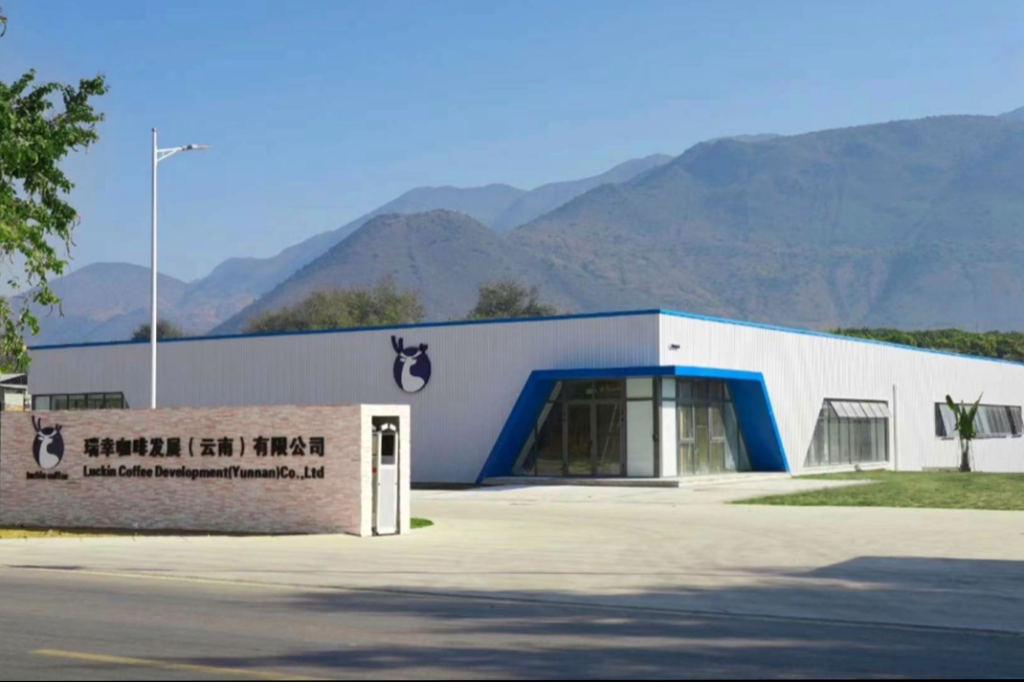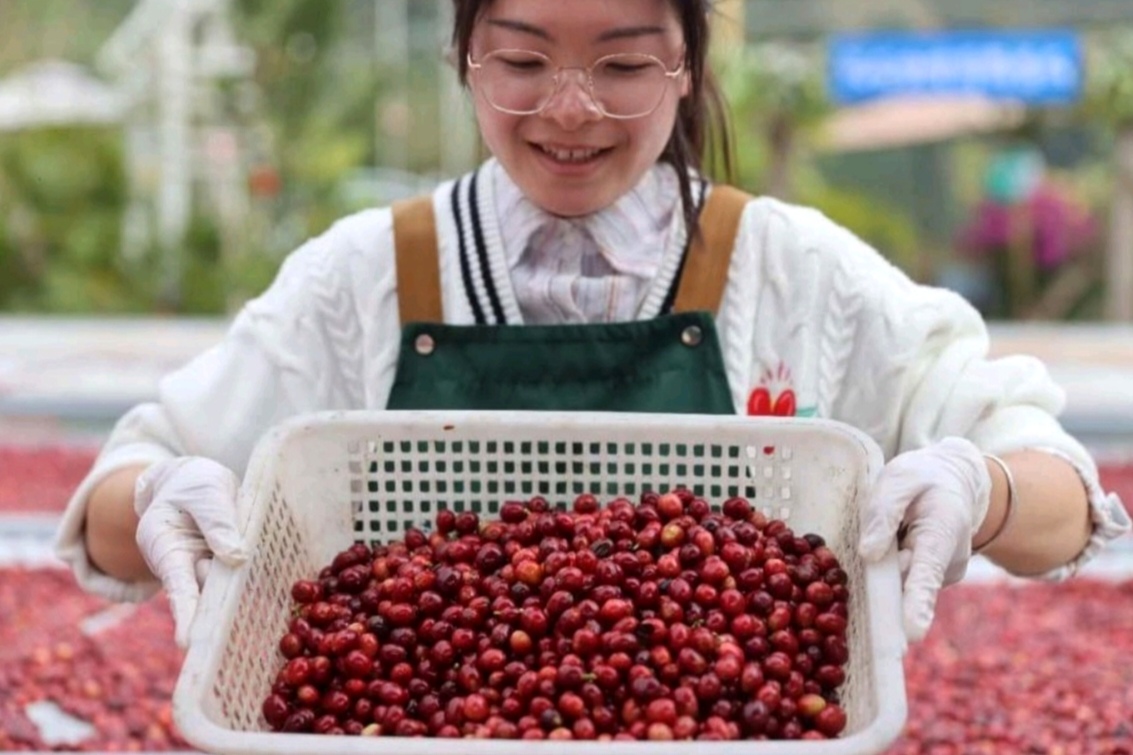Coffee harvest from the ‘global golden belt’
High in the mountains of southwest China, a quiet transformation is taking root. Yunnan, a land once synonymous with tea, is now cultivating a coffee legacy of its own — one shaped by altitude, climate, and an unhurried dedication to craft. Each harvest carries the taste of its terrain, offering the world a distinctly Chinese expression of a global favorite.
That transformation reached a high note at the 2025 First Gems of Yunnan Green Coffee Competition, a pilot program for the prestigious Cup of Excellence (CoE). Held in the border city of Baoshan, the event marked the first time a CoE-related contest took root in Yunnan.

Out of 144 entries, 19 samples scored above 87 points — the threshold for world-class coffee — in blind tastings by an international panel. The crown jewel, grown in Lincang’s mountain estates, fetched a record 13,000 yuan ($1,813.65) per kilogram at auction, setting a new benchmark for Chinese coffee.
For a province once known mainly as a raw bean supplier, the significance was profound: Yunnan had stepped into one of the coffee world’s most authoritative evaluation arenas, asserting itself not just as a grower, but as a global standard-setter.
Founded in Brazil in 1999, the CoE has transformed coffee from a commodity into a craft, blending competition with transparent auction systems. Every bean’s journey — from variety and processing method to pricing and producer — is meticulously documented. As one Brazilian farmer, Oliveira, whose beans earned an impressive 90 points, told People’s Daily in an interview, the experience was “a dream come true.”
The competition’s rigor matched its prestige. Judges from across continents roasted, ground, weighed, and brewed each sample, then cupped them multiple times, evaluating cleanliness, sweetness, acidity, texture, and complexity. These are the same exacting methods that have spotlighted new coffee stars from Honduras to Costa Rica over the past two decades, elevating both quality and farmer livelihoods.
Yunnan’s natural pedigree gives it an edge. Straddling the “global golden belt” for coffee cultivation, its plantations sit above 1,000 meters, where cool nights and sun-drenched days coax beans toward their peak. These very conditions — along with defined wet and dry seasons — also demand careful management, making every harvest a feat of patience and precision.
The province’s coffee history spans more than a century, but recent years have brought a leap forward. Between 2022 and 2024, the share of specialty-grade beans soared from 40% to 70%, while deep-processing rates climbed from 60% to 85%. Today, Yunnan produces 98% of China’s coffee, and “Yunnan” has become shorthand for premium in the country’s fast-growing café culture.

Luckin Coffee, China’s largest coffee chain, sources its green coffee beans from Yunnan. In March 2024, it opened a state-of-the-art processing plant in Baoshan’s Mang’ai Village, giving the company end-to-end control over quality from harvest to cup. Equipped with processing lines from Brazil and Colombia, the facility can handle up to 5,000 tons of cherries each year.
Coffee in China is more than a drink — it’s a cultural bridge. Shanghai now boasts more coffee shops than New York or London, and among younger Chinese, the daily cup has evolved into a social ritual and a marker of style. This embrace mirrors a broader Chinese philosophy: harmony without uniformity, absorbing global influences while expressing them through a distinctly Chinese lens.
From its highland terraces to the world’s auction blocks and café counters, Yunnan coffee has moved beyond participation to influence. It carries with it the story of a region embracing innovation while honoring its roots — a story now told in every cup, adding depth, elegance, and a new dimension to the language of coffee worldwide.



0 Comment